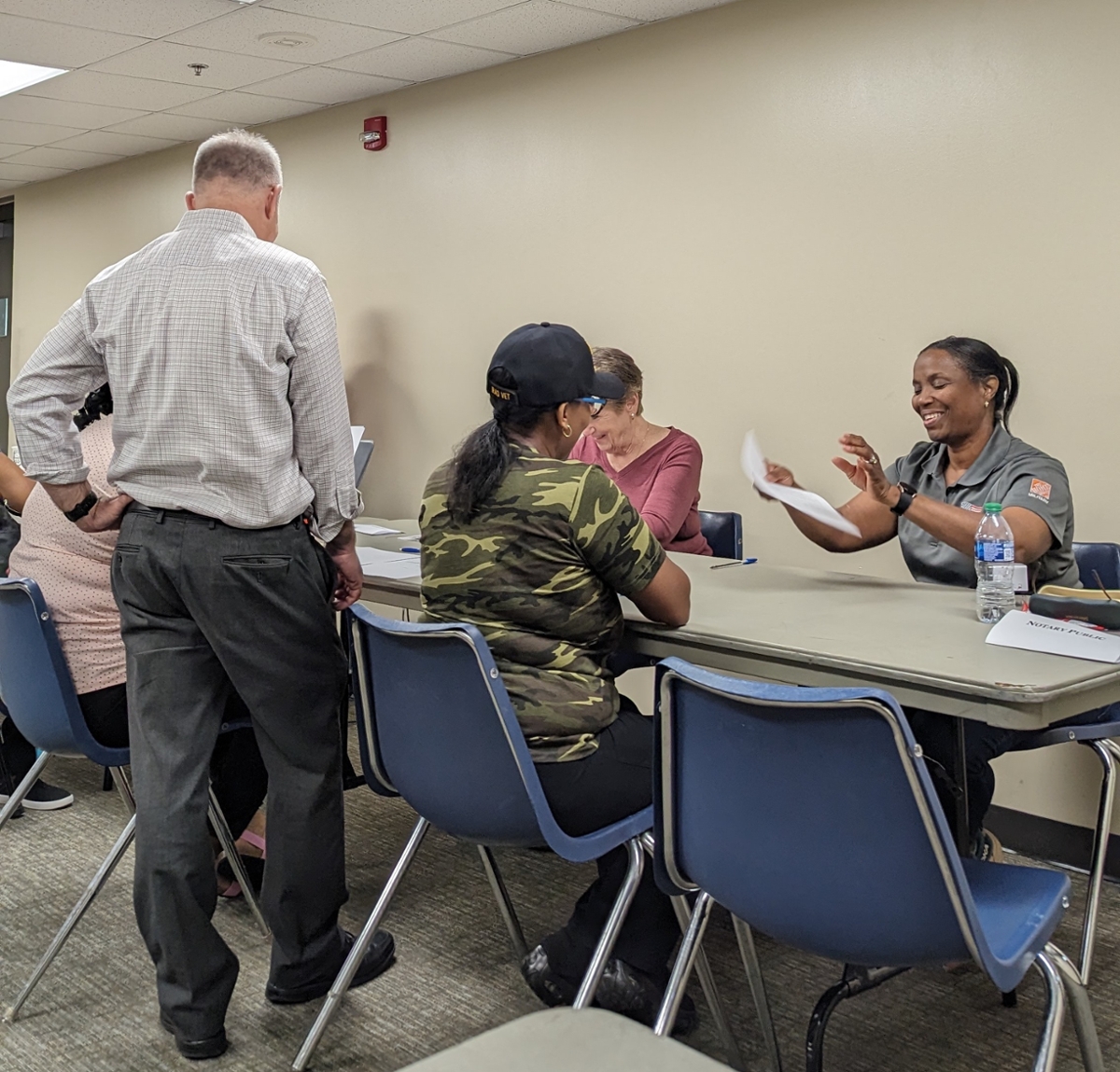Gateway to opportunities: Students reflect on Veterans Clinic experience

Emory Law's Volunteer Clinic for Veterans (VCV) has evolved into a pivotal touchpoint addressing the legal needs of low-income Georgia veterans. Xuting Zhang 22L, the current attorney fellow at VCV, emphasizes the clinic's significance for Emory Law students: “VCV serves as a great starting point for students to acquire hands-on experience at Emory Law. It's at our clinic that many 1Ls and international LLM students received their first substantive legal engagement.”
Celebrating its tenth year, the clinic’s enduring focus on specific legal domains contributes to this unique experience. VCV handles veterans' disability claims appeals and discharge upgrades. Notably, the veterans’ benefits system functions in a non-adversarial manner, which means veterans do not need to contend against government’s opposing counsel. Although veterans can handle their initial claims, appeals often require legal guidance due to challenges in evidence gathering and brief writing.
Presently, only around 1 percent of Georgia-licensed attorneys are VA-accredited. The scarcity of legal professionals in this field emphasizes the crucial role of legal clinics like VCV in providing vital legal assistance to veterans. Receiving a monthly payment of disability benefits can be life-changing for low-income veterans, preventing homelessness and providing essential support to their families. Zhang adds, “Emory Law VCV addresses low-income veterans’ genuine legal needs. Simultaneously, it offers an invaluable learning ground for students with cases less intricate than traditional litigation. In some situations, VA results might come through in about six months, giving students the chance to be part of the whole legal process from start to finish.”
VCV offers students the experience of real interaction with potential clients. As VCV’s summer intern, Joseph Park 25L actively engaged in conducting intakes with veterans. Park reflects on his experience, saying, “During my summer internship, I talked to over 100 veterans and their spouses. And it is humbling to witness firsthand the issues veterans face daily.”
Charlotte Kacprowicz 24L underscores how VCV enhances professional communication skills. She says, “Much of law is about professionally, yet passionately, working with people. Like anything else, this skill requires lots of practice. Working with VCV is one of the best ways to practice this skill as early as a first semester 1L.”
Addressing apprehensions surrounding a new legal field, Kacprowicz assures, “Don’t worry if you’re not familiar with veterans’ law! The VCV doesn’t require any additional knowledge of veteran’s law, but you will eventually become familiar with it during your time volunteering.” Andrew Sykes 24L explained that embracing the challenge of learning veterans law enhanced his understanding of broader administrative law during his subsequent summer internship at EEOC.
As the clinic expands, the need for student volunteers becomes more pronounced. “Beyond pro bono hours for fellowships and the bar exam, we also offer veterans’ law moot court opportunities and paid summer internships,” explained Zhang. “We are really looking forward to getting more student volunteers on board and helping them channel their volunteering experiences towards their future career goals.”